Maura Bradley (JD ’23) was the 2022-2023 Editor-in-Chief of the Public Contract Law Journal (PCLJ). We spoke with Maura about her thoughts on GW Law, her experience in the Government Procurement Law Program, and her plans for the PCLJ this year.

Interview With Maura Bradley
Where are you from? Why did you come to law school?
I am from the western suburbs of Philadelphia and I came to law school in part because of this background. Being raised in the city where our nation was born inspired a love for the law and politics early on. Additionally, growing up I saw my parents and grandparent practice law, which introduced me to what a career as an attorney could look like from a young age. Studying Political Science at Notre Dame, my undergraduate alma mater, further solidified this interest in my young adult life. I took many law-adjacent courses through my Constitutional Studies minor. I went straight through to law school after thoroughly loving what I had learned in my undergraduate courses.
How did you discover the government contracts field?
I discovered the field of government contracts upon arriving at GW Law. Early on during my 1L year, I attended a networking event that featured a government contracts attorney who had graduated from GW Law and earned the program’s concentration in government procurement. This attorney spoke highly of the government procurement program and of her positive experience practicing in the field. I began researching government contracts on my own accord after this glowing review and tailored my 1L summer job search to the field.
What is the Public Contract Law Journal (PCLJ) and why should students consider joining this journal? What skills and opportunities does the journal offer students?
PCLJ is a highly regarded academic journal dedicated to publishing government procurement scholarship. It is a joint project of GW Law and the American Bar Association’s (ABA) Section of Public Contract Law. Students should join this Journal because it is widely read by attorneys in the government contracts community! Additionally, student members have a high probability of being chosen for publication. The Journal offers a unique opportunity for visibility in the government contracts community in this sense.
Our students run the PCLJ on a day-to-day basis by editing publication pieces, working with authors, professors, and practitioners, etc., ultimately to coordinate the Journal’s production. Additionally, being a member of the Journal entails writing a 8,000 word note on a government procurement topic of their choosing. Student members should expect to hone their legal research and writing skills in addition to editing skills. Further, being a member of PCLJ offers ample networking opportunities because the government procurement community is tight-knit and highly populated with GW Law grads.
Please describe your experience with the PCLJ.
Being a part of PCLJ as a 2L member and now as Editor-in-Chief has been wonderful. In addition to learning more about the field of government contracts, I have honed my legal research and writing skills, which are invaluable to employers and to my future practice, and I feel grateful to have frequent opportunities to exercise these skills as a member of PCLJ. Additionally, I have found some of my closest friends at GW Law through the Formation and Performance of Government Contracts courses, which are strongly encouraged for PCLJ members.
Please describe your note topic – what was that process like?
My note explores why the Department of Justice should bolster the Antitrust Division’s Leniency Program with a qui tam provision like that found within the False Claims Act (FCA). I chose this topic because it combined a number of my interest areas and allowed me to become intimately familiar with the FCA. This statute plays a large part of the work in the government contracts field today, so I knew I wanted to become familiar with this law. In finding and refining a note topic, I met with various GW Law professors and spoke with them about potential ideas. Dean Tillipman and Sonia Tabriz particularly assisted me in narrowing my note topic area.
Any advice for new members of the PCLJ?
My advice to rising 2L members is to go out of your way to meet your peers on PCLJ and in your government contracts courses. The government contracts field is relatively tight-knit and these individuals will be your peers beyond your time at GW Law. You may even face them as opposing counsel!
Tell us about your 2L summer experience and how your involvement in the government contracts program at GW Law impacted that experience.
During my 2L summer, I was a summer associate at a law firm in Washington, D.C. in the firm’s Government Investigations and White Collar Crime group. I felt well-equipped to complete projects at the firm having taken Formation and Performance of Government Contracts in addition to Anti-corruption and Compliance. I was comfortable speaking about the FAR, the FCPA, the FCA, and more because of our wonderful courses and intelligent faculty. I have thoroughly enjoyed working at a law firm and see myself practicing in this group for the foreseeable future after clerking.
What advice do you have for students who are interested in government contracts?
My advice for students interested in government contracts is to reach out to attorneys in DC who practice government contracts and ask them about what they do. Speaking with associates about their day to day will give you insight as to whether the field of government contracts is a good fit. It will also allow you to survey what kinds of opportunities are available for those who practice in the field, whether it be at a law firm, government agency, in-house, or otherwise.

